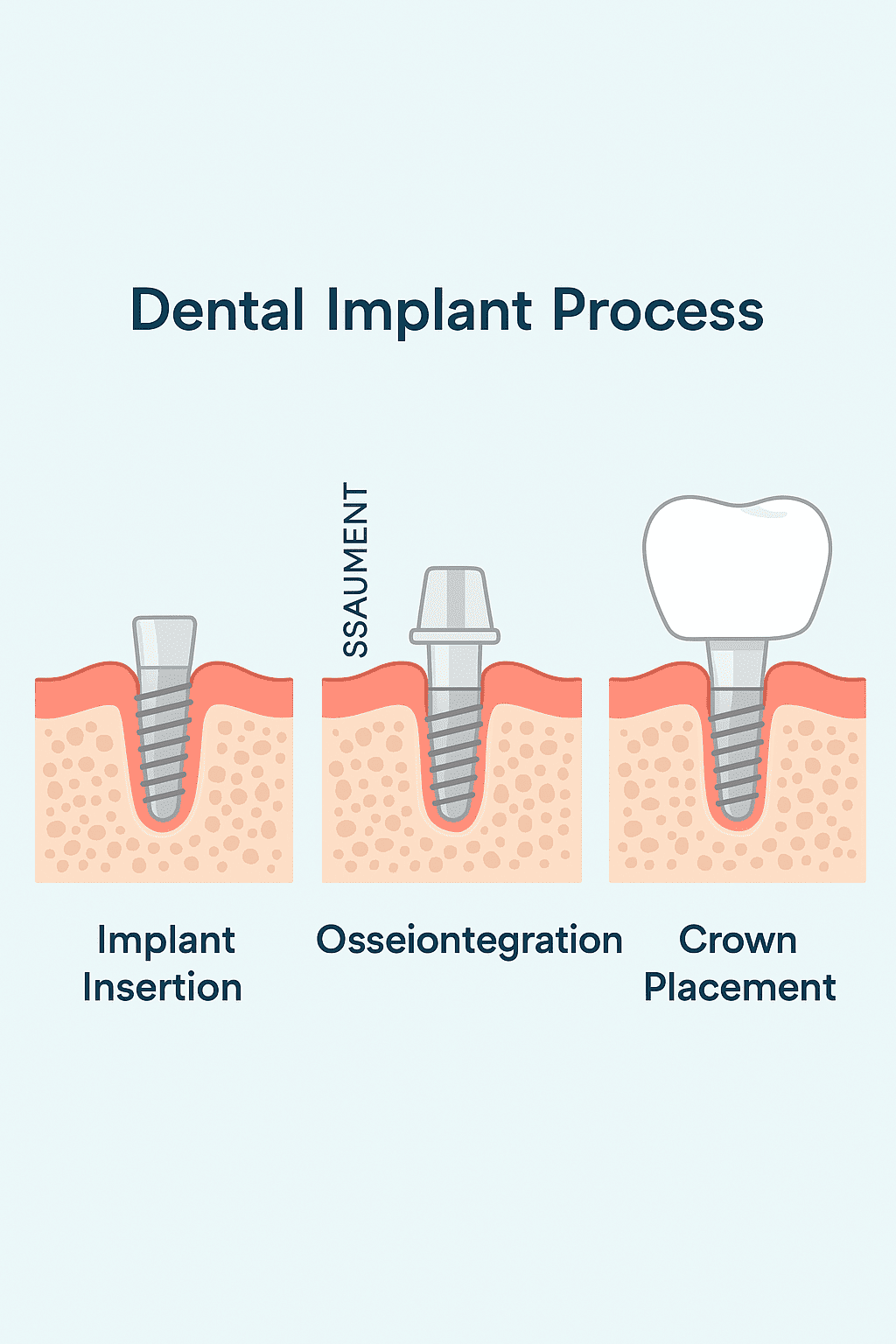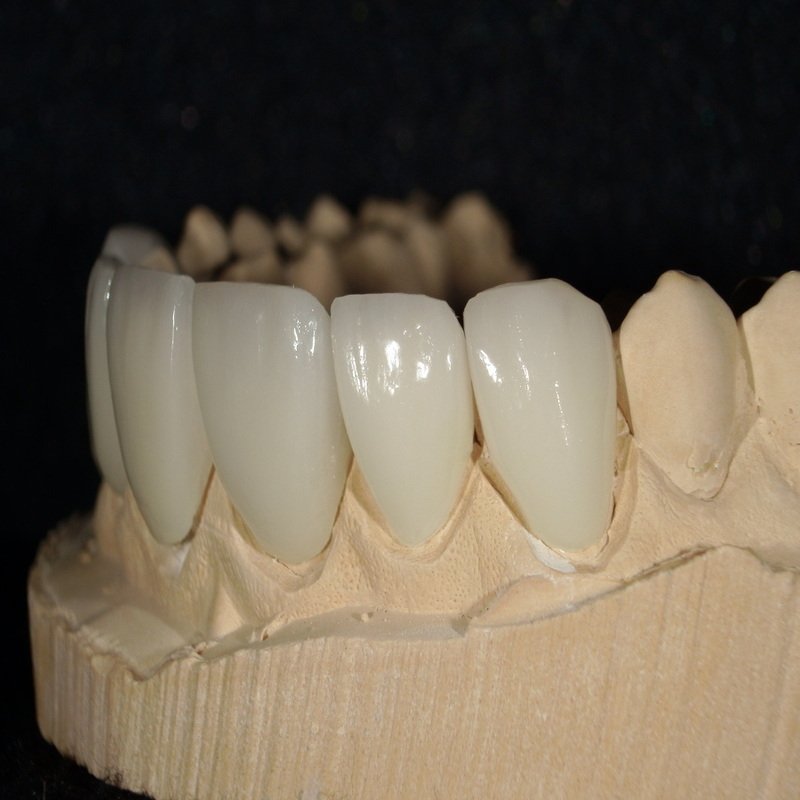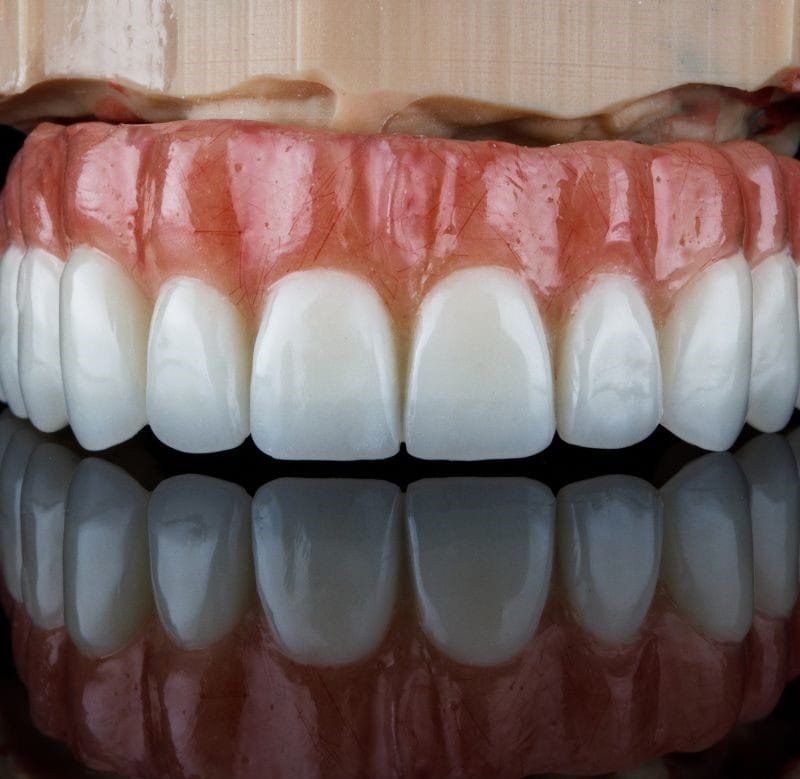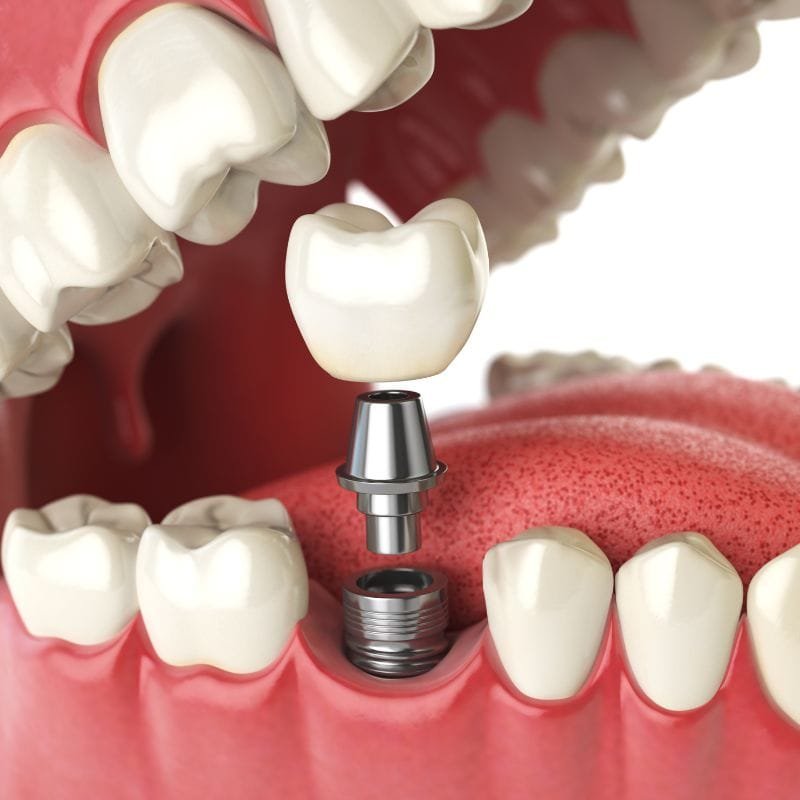Introduction
Have you lost a tooth and are wondering what the best way is to replace it? Dental implants might be exactly what you're looking for. These modern wonders of dentistry don’t just bring your smile back—they also give you the confidence to eat, talk, and laugh freely. In this complete 2024 guide, we’ll dive into everything you need to know about dental implants: what they are, how they work, how much they cost, and more.
Whether you’re searching for “what are dental implants?” or “how much does a dental implant cost?”, you’ll find helpful and detailed answers here. For more information on our services, check out our Home page.
What Are Dental Implants?
Dental implants are titanium posts that are surgically placed into your jawbone to replace the roots of missing teeth. Think of them as a solid foundation for a replacement tooth—like a crown, bridge, or even a full denture. The process is pretty fascinating: first, the dentist inserts the implant into your jawbone. Over the next few months, the bone grows around it in a process called osseointegration, anchoring it firmly in place. Then, a connector (called an abutment) is added, and finally, a custom-made crown is placed that looks just like a natural tooth.
What are they made of?
Most implants are made of titanium, a material your body gets along with very well, as it allows the bone to fuse with it. Some opt for alternatives like zirconia, especially if they have metal allergies.
Types of Dental Implants
- Endosteal: The most common type, placed directly into the jawbone.
- Subperiosteal: Less common, placed under the gum but above the bone—ideal if you don’t have enough natural bone.
If you’ve been wondering “what are dental implants?”, they’re essentially a long-lasting, natural-looking solution to replace missing teeth.
Curious about how they’re placed? We’ll cover that later.
Learn more about Dental Implants

Benefits of Dental Implants
- Natural appearance: Implants are designed to look and feel like your real teeth.
- Comfort: No more loose dentures or adhesives—implants are fixed into your jawbone.
- Durability: With proper care, they can last a lifetime.
- Bone health: Implants stimulate the jawbone, helping prevent bone loss.
- No damage to other teeth: Unlike bridges, implants don’t require altering adjacent teeth.
- Improved quality of life: Enjoy your favorite foods, speak clearly, and smile confidently.
Studies show a success rate of over 95%, making them a very safe and reliable option.

How Much Do Dental Implants Cost?
The cost of dental implants varies depending on several factors:
- Number of implants: Whether you need one or several.
- Location: Prices can differ by city or country.
- Dentist’s experience: Specialists may charge more, but the quality justifies the cost.
- Extra procedures: Additional work, such as bone grafts or sinus lifts, can increase the price.
On average, a single dental implant (including the implant, abutment, and crown) costs between $3,000 and $5,000. If you require multiple implants or additional procedures, the total can range from $10,000 to $30,000.
What about insurance?
Many dental insurance plans don’t cover implants because they are seen as cosmetic, although some plans offer partial coverage. Additionally, many clinics provide financing options, such as monthly payments or lender partnerships, to help make the investment more affordable.
While the upfront cost may be high, dental implants can last for decades—unlike bridges or dentures that typically require replacement every 5–10 years—so they can be a cost-effective solution in the long run.
Are Dental Implants Painful?
The procedure is performed under local anesthesia, so you will feel little more than pressure during the surgery. Post-surgery, you might experience some discomfort—such as swelling, bruising, or mild pain—which is usually easily managed with over-the-counter pain relievers like ibuprofen or acetaminophen and typically subsides in a few days.
Post-surgery tips:
- Use ice to reduce swelling.
- Stick to soft foods for the first few days.
- Follow your dentist’s instructions carefully.
Most patients report that any discomfort is far less than what they anticipated.
How to Choose the Right Dentist for Dental Implants
- Look for specialization: Choose a dentist who is trained in implantology and has extensive experience.
- Check their track record: Request to see before-and-after photos or read online reviews.
- Talk to them: Ask about the number of implants they have placed, the materials they use, and the overall process.
- Technology matters: Dentists who use computer-guided surgery or other advanced techniques typically achieve better results.
Dental Implants vs. Other Tooth Replacement Options
- Dentures: Removable and less expensive, but often uncomfortable and prone to shifting.
- Bridges: Fixed in place but require the modification of adjacent teeth, which may weaken them over time.
- Dental Implants: Provide a natural look and feel, last much longer, and don’t affect neighboring teeth.
If you want a solution that feels like your own teeth and avoids constant adjustments, dental implants are the clear winner—even if they come with a higher initial investment.
Caring for and Maintaining Dental Implants
- Brush twice a day with a soft-bristled toothbrush, taking care around the implant area.
- Floss daily with wax-free floss or floss designed specifically for implants.
- Mouthwash: Use an antimicrobial rinse to help control bacteria.
- Avoid bad habits: Do not smoke or chew hard objects like ice or pens.
- Visit your dentist regularly—at least every 6 months—for professional cleanings and check-ups.
With proper care, your implants can last a lifetime; while the crown may need replacement after 10–15 years, the implant itself remains durable.
Frequently Asked Questions About Dental Implants
How long do dental implants last?
With proper care, they can last a lifetime. Crowns may wear out after 10–15 years, but the implant remains strong.
Who can get dental implants?
They are suitable for most healthy adults with sufficient jawbone. If you smoke or have conditions like diabetes, your dentist will evaluate your candidacy.
How long does the process take?
The complete process—from surgery to final crown—typically takes between 3 and 6 months, depending on healing. Temporary crowns may be used during this period.
Do they hurt after surgery?
Any post-operative pain is usually mild and manageable with pain relievers.
Can they fail?
Failures are rare (with a success rate over 95%), though complications like infection or poor bone integration can occur if not done by an experienced dentist.
Are there risks?
As with any surgery, minor risks such as infection or nerve damage exist but are minimal when performed by a qualified professional.
Conclusion
Dental implants are an amazing solution for anyone wanting to regain their smile without hassle. Yes, the initial cost is higher and the process involves surgery, but their durability, comfort, and natural appearance make them well worth it. If you're wondering “are dental implants worth it?”, for most people the answer is a resounding yes. Consult with a trusted dentist, ask your questions, and take the first step toward a healthier, happier mouth.
Ready to get started? Look for a specialist near you and discover how dental implants can transform your life. Also, don't miss our information on the All on 4 treatment for a complete smile restoration.
Would you like to receive more information?
Click on the button below and receive first hand information for your specific case.



